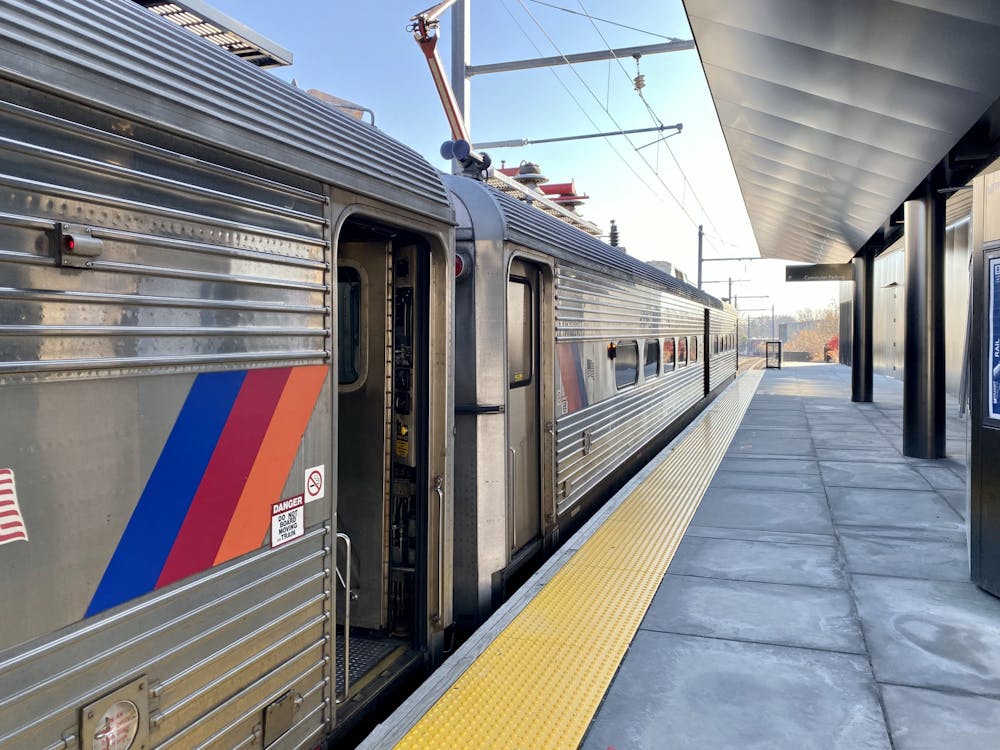Before I left for my semester abroad at the University of Sussex last spring, an older friend who had also spent her junior spring in England gave me advice which would ring truer than she could possibly have expected. “You can’t expect every day to be the greatest adventure of your life,” she said. “In fact, sometimes it’s going to suck — and that’s okay. That’s normal. That’s life.”
My experience abroad was miserable: it was the worst semester of my life.
And I’m glad I did it.
I arrived in the dark gray winter, the sun barely staying up past 4 p.m. The campus was made of drab brick. While other exchange students headed into town for (legal!) drinks and friend-making, I entombed myself in my room, studying for the three exams that Princeton’s outdated academic schedule forced me to take during my first week of classes at Sussex. My flatmates ran the gamut of isolating personalities from anti-social to chauvinist pigs, and they left the kitchen and stairwell such a jungle of rubbish, mold and flies that the university regularly threatened to fine us, or worse. Less than a month in, my girlfriend broke up with me. It rained every day, and I would go weeks without seeing the sun.
Isolated from my old friends and unable to make new ones, I found myself adrift academically, socially and, eventually, emotionally. There were days I felt too sick to leave bed. I never seriously contemplated suicide or self-harm, but the thought did regularly occur to me that a serious injury or sickness would allow me to escape the gray apathy that was as ubiquitous as Brighton’s wet sea mist.
It should be clear that I was dealing with significant mental health problems. But this is not a column about mental health on either Princeton’s or Sussex’s campuses. Nor is it a plea for attention (at least, no more than any other of my columns). In fact, this is a column urging you to study abroad.
I’ve always been stunned by the resilience of the human mind. Somehow, every year, 1,300 freshmen arrive on this campus, most without having experienced anything similar to the academic, social and emotional minefield that is Princeton. It is a testament to our adaptivity that somehow, every year, those 1,300 become integral parts of a community which, for all its problems, has a remarkable sense of shared mission and historical continuity.
The roles of so-called safe and unsafe spaces in collegiate discourse have been thoroughly discussed and mocked, with safe spaces variously regarded as either a critical component for a community filled with youthful, vulnerable minds, or as a damaging idea which allows escape from appropriately challenging discourse. Setting aside the hysteria which pops up on either side of this debate, the safe space/unsafe space distinction is overly simplistic — a particular distinction to this model is one we discuss in Outdoor Action when preparing to lead trips. This further divides safe spaces into two areas: comfort zones, in which we are not challenged and cannot grow, and the learning edge, where we can take new perspectives, consider uncomfortable ideas and grow as people.
This spring, I lived in and beyond the learning edge. And I think this edge is a far broader area than we give it credit for. I was unequivocally out of my depth for a few months, and I still managed to learn and grow as a person. I grew closer to my friends, for I leaned on friends at home, and did eventually push myself to reach out to new friends in Brighton, as we revealed our vulnerabilities to each other. I grew in my understanding of my life’s goals, as I searched for what components of research and writing I did — or didn’t — find meaningful. And I grew in understanding myself, as I saw myself pushed to the edge and beyond.
Safety nets matter. I would have been utterly lost without the help of friends to keep me grounded, family to remind me of who I am, spiritual communities to keep me seeking truth beyond myself, and counseling over the summer. But just as without these I would not have found myself again, without unmooring myself from Princeton’s comfort, I would never have bothered to search for myself in the first place. These 1,300 freshmen who are just now settling in will adjust to Princeton only because we can, and must, live on the learning edge. Those of them who change the world will do so only because they were challenged and grew.
My senior year schedule is a Rubik’s Cube of conflicting requirements, and I got a late start on my thesis work. But studying abroad was never about building marketable or testable skills. However much my research or scholarship tied into my term abroad, I am not a researcher or a scholar first, but a human being — and it is as a human being that I grew most this spring.
So leave your comfort zone. Study abroad, challenge your politics or religion, talk to strangers. College is about growing. Meaningful life is lived on the learning edge.

Sometimes, it’s going to suck. It was the worst semester of my life. But I’m glad I did it, and I think everyone should. Because that’s okay; that’s normal. That’s life.
Bennett McIntosh is a chemistry major from Littleton, Colo. He can be reached at bam2@princeton.edu.







